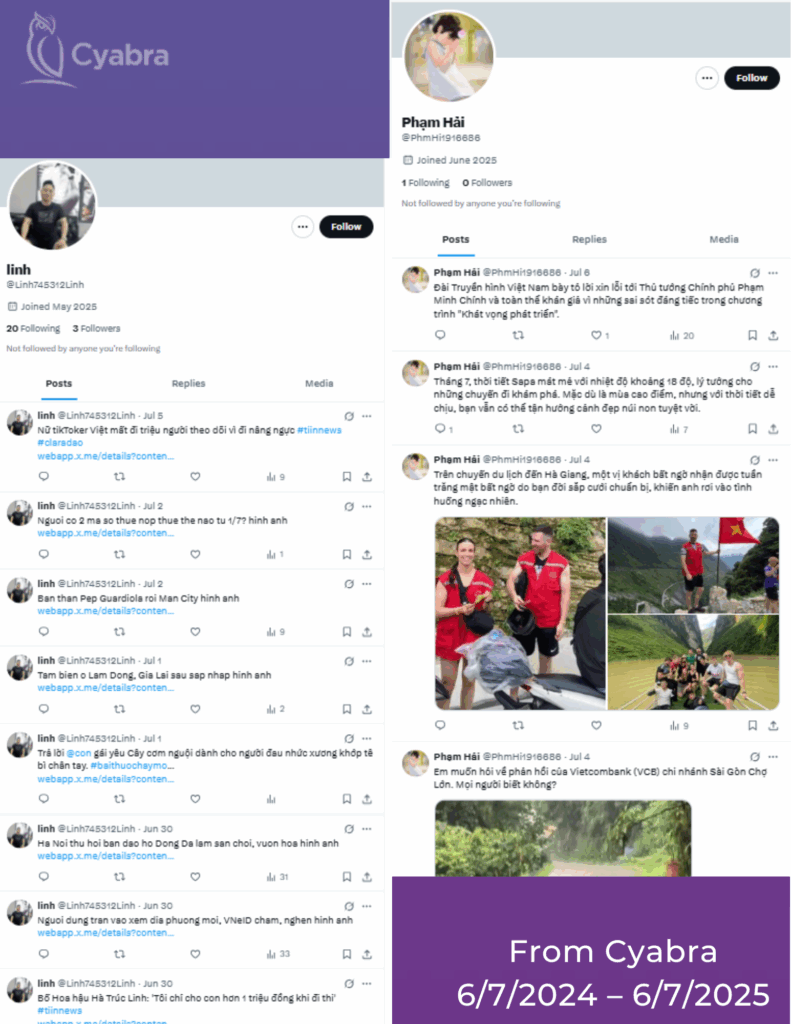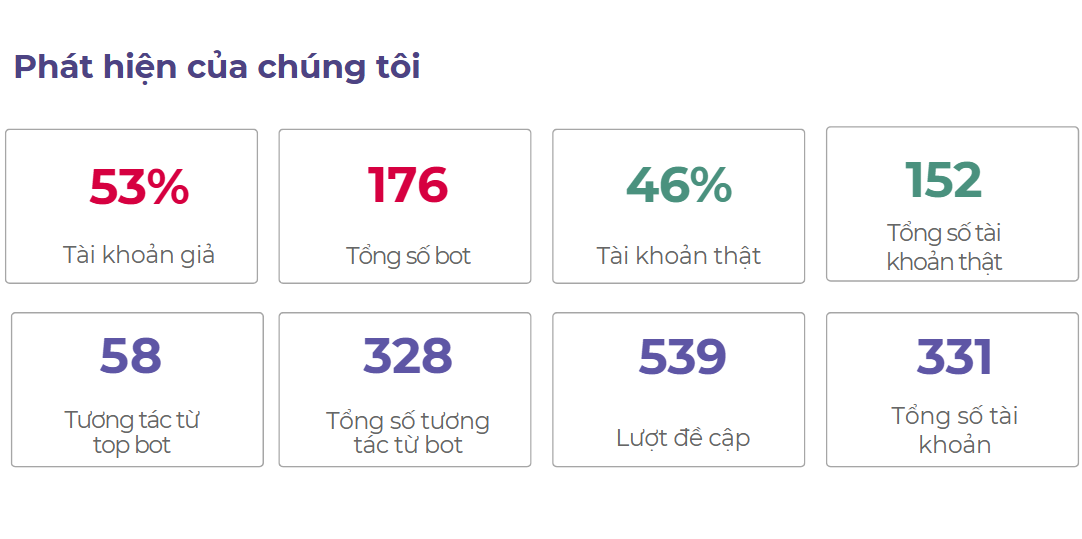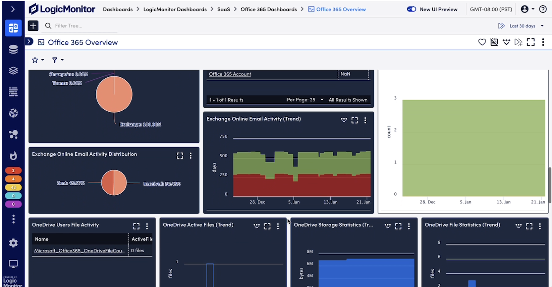OVERVIEW
Recent discussions surrounding VNeID, Vietnam’s electronic identification app, on social media have revealed a troubling mix of legitimate updates and misleading content. Notably, many posts include suspicious links with headlines like “view your updated hometown information” following recent administrative mergers—posing phishing and data leakage risks to users.
Coordinated Spread of Fake Content
A large number of fake accounts are actively urging users to “update VNeID now to see your new address and hometown,” attaching suspicious links that may lead to phishing attacks. Alarmingly, these posts often contain nearly identical wording and appear simultaneously across multiple accounts, indicating a high level of coordination.
Other accounts spread misleading claims such as “VNeID is overloaded due to too many people checking their new localities,” paired with dangerous links. These tactics are designed to exploit public curiosity and confusion over administrative changes.
There are also posts disguised as helpful security warnings—such as “be careful sharing your new hometown on VNeID, it may lead to data exposure”—which are, in fact, part of a social engineering tactic to earn user trust and prompt link clicks.
In addition, several posts falsely claim issues like “driver’s licenses disappearing after the app update,” with many accounts sharing nearly identical language: “After updating VNeID, did anyone lose their license? I asked some friends, and most of them had this problem.”
Fake Accounts Are “Staging a Show” on Social Media
These fake accounts aren’t just randomly active—they are operating in coordination. They post similar or identical content in different formats, often using the same phrases and including malicious links. The goal is clear: exploit public anxiety and curiosity around VNeID changes to spread misinformation and lure victims.
👉 Below are real examples of fake posts identified and analyzed by Cyabra between July 6, 2024, and July 6, 2025:


Common misleading narratives include:
- VNeID servers crashing due to high user traffic.
- VNeID updates causing loss of driver’s licenses.
- Fake links claiming to let users “see their updated hometown.”
- Fake security warnings that appear trustworthy but are designed to deceive.
Medium-Level Risk, But Requires High Vigilance
According to Cyabra’s data, out of 331 accounts involved in the discussion, 176 (or 53%) were identified as fake, and 328 interactions came from bots — indicating a well-orchestrated disinformation campaign.
Suspicious posts such as “VNeID update” and “system overload” are being actively amplified by high-engagement fake accounts. While the overall risk level is currently assessed as medium, the scale and sophistication of this operation make it a serious concern. Continuous and close monitoring is essential—both by authorities and the online community—to prevent phishing attacks targeting Vietnamese citizens.

Contact Cyabra Vietnam for brand protection solutions against social media threats.
Explore more: Why Your Business Needs Online Protection Tools

















